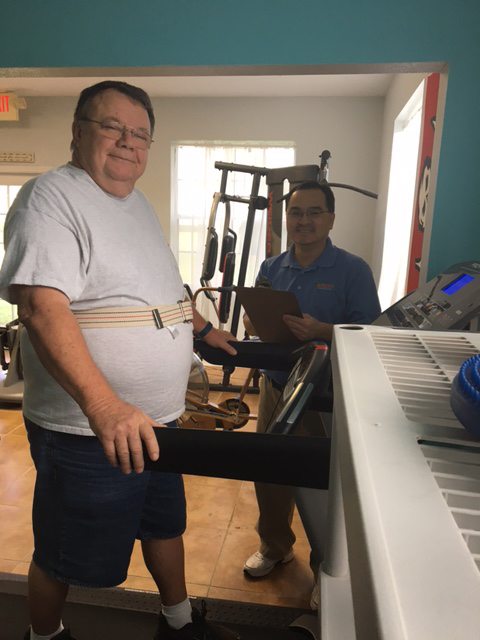Cardiac Rehab
Common symptoms of cardiovascular diseases
Coronary Artery Disease (CAD) Risk Facgtors
What to expect at GingerHealth
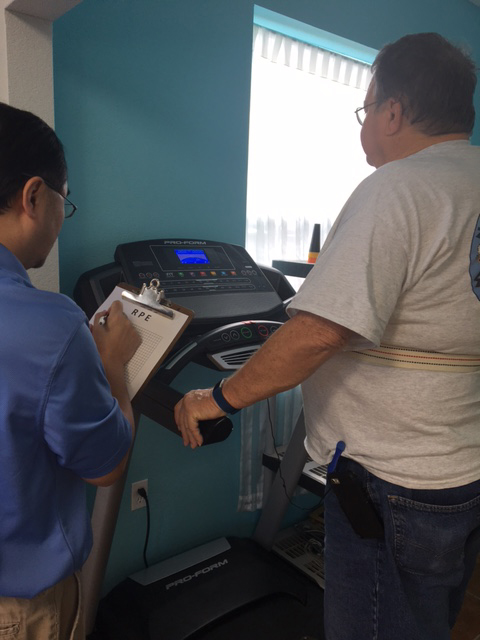
Cardiovascular Rehabilitation
Cardiovascular diseases are disorders of an individual's heart and blood vessels. These include coronary heart disease which affects the blood vessels that supplies blood to the heart, cerebrovascular disease, peripheral arterial disease, rheumatic heart disease, congenital heart disease and deep vein thrombosis (World Health Organization, 2016).
Build up of fatty deposits in the blood vessels can lead to blockages that prevent blood flow to reach the heart or the brain resulting in heart attacks or strokes. Bleeding from the blood vessels and blood clots can also lead to strokes (hemorrhagic).
Common symptoms of cardiovascular diseases (World Health Organization, 2016):
- Pain or chest discomfort
- Pain or discomfort in the arms, left shoulder, elbow, back and jaw
- Difficulty in breathing or shortness of breath
- Feeling light headed
- Cold sweats
Common symptoms of stroke (World Health Organization, 2016):
- Numbness to one side of the body, including the face, arm and leg
- Confusion- difficulty in understanding or speaking
- Difficulty in walking or balance instability
- Vision changes/ difficulty seeing
- Severe headaches
- Fainting
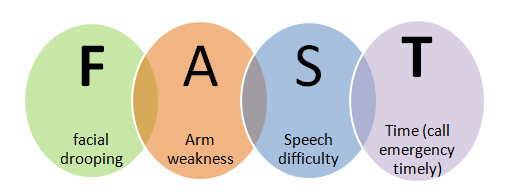
Coronary Artery Disease (CAD) Risk Factors (Bartels, n.d.) :
Reversible Risks
- Sedentary lifestyle
- Cigarette smoking
- Hypertension
- Low HDL cholesterol
- Hypercholesterolemia
- High lipoprotein A
- Abdominal obesity
- Hypertriglyceridemia
- Hyperinsulinemia
- Diabetes Mellitus
Irreversible Risks
- Age
- Male gender
- Past history of CAD
- Family history of premature CAD
- Past history of occlusive peripheral vascular disease
- Past history of cerebrovascular disease
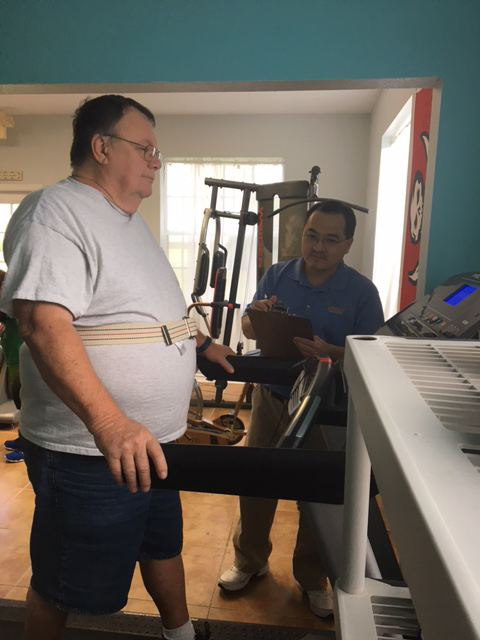
Cardiac Rehabilitation
Cardiac rehabilitation is a medically supervised program for individuals who have had heart conditions that require resting the heart, such as after a heart attack or healing after open heart surgeries. Cardiac rehabilitation services are often available for patients at various levels of interventions. The goals for cardiac rehabilitation includes improving heart functions, increasing cardiac conditioning, reducing cardiac risk factors and reduction of disability (Bartels, n.d.). Through patient education, modification of behavior and exercise, the rehabilitation program may allow a person to return to their normal daily activities without significant symptoms of their heart disease (Bartels, n.d.). It also involves education in exercise techniques and doing it safely while you increase your physical activity.
Instructions for lifestyle changes and healthy living to address the risk of cardiovascular disease can be incorporated in your care. You will also receive education, guidance and support regarding safe weight reduction through healthy nutrition and to reduce unhealthy habits such as tobacco use.
It is not unusual for some patients to experience anxiety and depression after a cardiac event. Screening for symptoms are completed to improve cardiac rehabilitation treatment outcomes. Turner et al. (2010) suggest that depression, even at a minimum, is a reliable clinical indicator of an individual's clinical treatment outcome (p. 658). It's also associated with a lower cardiac rehabilitation completion rate (Casey, Hughes, Waechter, Josephson, & Rosneck, 2008).Discussing the signs and symptoms of depression with your physician and rehab staff will help. Counseling may be recommendedto address the individual's emotional health.
Exercise training is beneficial for patients with coronary arterial disease. Belardinelli et al. (2001) suggest that exercise training determines the regression or delays disease progression for patients with coronary artery disease (p. 1891) and significantly improves the functional capacity in patients with ischemic heart (p. 1898). Long term exercise training of moderate intensity was found to be safe and improves the patient's functional capacity and quality of life (Belardinelli et al., 2001).
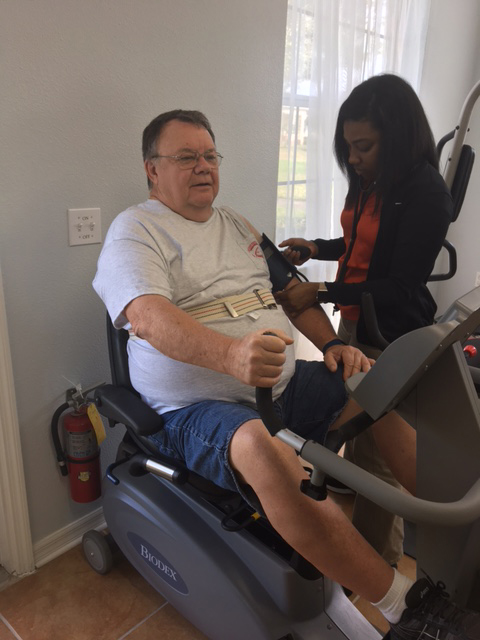
What to expect at GingerHealth
- You'll be seen by a Doctor of Physical Therapy for a comprehensive evaluation. Your results will be sent to the referring physician and explained to you in details.
- We'll discuss your treatment plan by helping you understand how your condition developed and what you can potentially do.
- Your endurance and medical limitations will be monitored and discussed during each session
- You will receive instructions of how to exercise safely
- We will ask you to provide a list of all the medications, prescribed and over the counter, and any supplements and herbs, etc., that you are taking, to be sure there are no potential adverse interactions.
- Review nutrition, intake and voiding patterns
- Review of your diet, exercise, and lifestyle habits
- Support you on lifestyle changes
- All your exercises will be supervised and progressed in a safe and incremental manner
- We can discuss sexual health concerns that you might have
- We will instruct how to return to your life tasks, work, sports, or hobbies
- We have yoga and meditation classes to help reduce yours stress levels, giving you opportunities for a renewed outlook on life.
Your goal is our goal
Let's improve your Quality of Life!
Call 813-631-9700 to schedule your Cardiovascular sessions
with our Doctor of Physical Therapy
